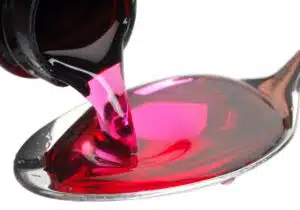Table of Contents
What is an Inpatient Rehab Center
Inpatient drug and alcohol rehabilitation centers provide constant care and supervision as patients stay onsite throughout their treatment duration. While hospital-based inpatient facilities ensure round-the-clock medical attention from seasoned healthcare professionals, numerous residential rehabs, not necessarily within a hospital setting, also guarantee prompt access to medical assistance as required.
At the majority of inpatient centers, daily participation in group therapy is a staple. Often, attendees also benefit from individual counseling sessions and support group interactions. Engaging in group meetings, especially ones affiliated with 12-step programs, allows patients to draw from the collective experiences and insights of peers on analogous recovery paths.
Additionally, several inpatient centers present alternatives to the traditional 12-step model, hosting non-12-step support group sessions. To further discern the nuances between the conventional 12-step and its alternatives, delve deeper into the expansive world of drug and alcohol recovery programs.
What is Residential Inpatient Treatment?
Residential rehabilitation centers offer 24-hour inpatient care in a typically non-clinical setting, centering on fostering personal accountability and responsibility. Through well-structured activities, individuals are guided to scrutinize and alter destructive behavioral patterns, negative beliefs, and adverse self-concepts. The goal is to supplant these with more constructive, harmonious ways of relating to others.
Short-term residential treatment facilities provide an immersive, yet succinct experience using a modified 12-step treatment approach. This concentrated method aids in swift progress, leveraging time-tested principles to facilitate recovery, encourage self-awareness, and promote lasting change in those seeking freedom from addiction.
What are the Benefits of Inpatient Treatment
Inpatient treatment programs, particularly for individuals grappling with a deep-rooted Substance Use Disorder (SUD), offer a myriad of advantages over outpatient options. Key benefits include:
- Consistent Structure: At the onset of the recovery phase, a stable, predictable environment can be a game-changer. Inpatient programs emphasize a regimented daily routine, ensuring individuals remain committed to their recovery throughout the day. This consistent structure cultivates healthier daily habits.
- Round-the-Clock Support: One of the standout perks of an inpatient setting is the constant surveillance and support. This intensive oversight minimizes the chance of patients accessing substances during their stay. Measures like restricting cellphone usage further reinforce a substance-free atmosphere.
- Bespoke Treatment Plans: Every individual’s journey is unique. Recognizing this, inpatient programs design a treatment blueprint tailored to each client. The plan accounts for the specific substance issues and any concurrent mental health challenges, like anxiety or depression, often termed as co-occurring conditions. Holistic Treatment Modalities: These programs don’t just focus on one aspect of recovery. Instead, each day of the week is packed with varied treatment elements, from therapy sessions and group meetings to recreational activities and holistic practices. This multifaceted approach addresses the central goal: empowering individuals to instigate profound changes in their thoughts and actions, anchoring lasting sobriety.
- The Power of Peer Support: Sharing the recovery journey with peers is an added advantage of inpatient programs. Residing within the treatment facility for an extended period facilitates the formation of deep connections with fellow participants. Engaging in group therapy, attending classes, or even sharing meals allows bonds to form, setting the foundation for a robust post-treatment support system.
Harness the full potential of a residential treatment program to enhance your journey to a sober, healthier life.
What is Treated at a Residential Inpatient Treatment Center?
Residential Inpatient Programs specialize in treating a spectrum of mental health and substance abuse conditions such as:
- Drug Abuse
- Alcohol Abuse
- Depression
- Anxiety
- Bipolar Disorder
- PTSD & Trauma-Related Disorders
- Schizophrenia
- Personality Disorders
- Various Mood Disorders
- Co-Occurring Disorders
Designed for those in need of a more intensive care regime than outpatient services can offer, while inpatient treatment is particularly beneficial for clients grappling with acute mental health disorders, enduring conditions, or those undergoing a mental health crisis. It’s also a fitting solution for individuals who haven’t seen desired outcomes from less intensive therapeutic interventions.
In essence, clients benefit from round-the-clock care supervised by a diverse team of mental health specialists. This dedicated team, encompassing psychiatrists, psychologists, therapists, nurses, social workers, and other trained professionals, works cohesively to devise and execute a treatment plan tailored to the unique requirements of each client.
The duration of a client’s stay at a residential treatment facility can vary, ranging from several weeks to multiple months. This is determined by their personalized treatment objectives and the progression of their recovery.
Which Inpatient Treatment Length is Best for Me?
When exploring treatment options, many wonder about the ideal duration for residential inpatient rehab. Various programs cater to individual needs, ranging from short stints like 30 days to extended stays.
- 30-day Programs: Ideal for individuals taking initial recovery steps. This brief stay can be a gentle introduction to the rehabilitation journey, mitigating apprehensions about the process.
- 60-day Programs: Offers an extended period to delve deeper into addiction causes and set the foundation for a sober life.
- 90-day Programs: Recommended for those grappling with intense or prolonged addictions. The additional duration equips them with coping mechanisms to tackle stressors and avert relapses.
Programs exceeding six months are typically labeled as long-term treatments, whereas durations between 30-90 days fall under the short-term category. Long-term rehab primarily encompasses residential or inpatient treatments where clients reside within the facility round-the-clock. On the other hand, outpatient rehabs permit patients to stay at home, attending day-time sessions.
Short-term rehab often comprises initial weeks of inpatient care, succeeded by outpatient sessions.
Selecting the right program depends on numerous factors: the nature of the addiction, any concurrent disorders, past medical records, and tailored assessments. For optimal guidance, consult with a therapist or an admission counselor to pinpoint the appropriate treatment span. Remember, rehabilitation is an ongoing journey, not confined to the duration of a program. A robust inpatient program should seamlessly transition into a holistic treatment strategy, emphasizing post-rehab care to ensure enduring recovery.
Does Insurance Cover Residential Inpatient Drug and Alcohol Rehab?
Selecting the right residential inpatient rehab center becomes easier when you understand your insurance coverage. Many insurance plans may shoulder a significant portion, if not the entirety, of rehab costs. To clarify your coverage, simply reach out to your insurance provider and they will provide you with your coverage. Making informed decisions can make your journey to recovery smoother.
How Much Does Residential Inpatient Rehab Treatment Cost?
Navigating the costs of residential inpatient rehab programs requires understanding several variables, including amenities, location, program structure, and duration. For clarity on financial commitments, it’s crucial to consult with the facility’s representatives before enrolling.
Costs can differ significantly based on whether the center is public or private. Moreover, your insurance coverage plays a pivotal role in determining out-of-pocket expenses. While certain programs benefit from grants, government support, or scholarships, rendering them free or low-cost, others, like luxury or executive rehabs, come with a premium price tag owing to their high-end offerings.
Insurance often covers a portion of rehab expenses. For a clear picture of coverage, reach out to your insurance provider to discern potential reimbursements for rehabilitation services.
How to Find the Best Inpatient Rehab Center Near Me
Searching for a premier intensive inpatient rehab presents a wealth of choices. While evaluating potential programs, it’s essential to weigh various considerations. Remember, no single program suits everyone; your ideal path to recovery lies in a residential treatment tailored specifically to your individual needs.
The above service is not within The Iris Wellness Group Program. We realize, however, that it is essential to one’s long-term sobriety. If you or a loved one require any services that we do not provide, please let us know and we will try to get you connected with a member of our reputable network of affiliates.









